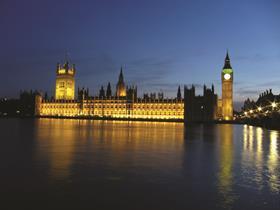Scottish Affairs committee calls for further submissions following its damning report

The Scottish Affairs Committee is inviting further submissions on blacklisting following the publication of its interim report yesterday.
In the , the committee questioned the evidence it had received on the subject from Balfour Beatty, Skanska and Sir Robert McAlpine and warned that it would consider whether such firms should be barred from tendering for public sector work.
It is now seeking help in answering four main questions including the vital issue of whether blacklisting has continued since the closing down of the Consulting Association (TCA) in 2009.
In his response, the business secretary Vince Cable welcomed the report but said “no new evidence” had emerged since a Commons debate on blacklisting in January led by his Labour counterpart Chuka Umunna.
Cable said: “I am clear that blacklisting is an appalling and illegal practice. We will look carefully at the committee’s final recommendations when these are published and if there is new evidence that blacklisting is continuing today, I will ask the appropriate authorities to carry out a full and thorough investigation.
“The Information Commissioner’s Office stands ready to act and stamp out this illegal practice if any anything new comes to light and I would urge anyone with new information to come forward as soon as possible.”
Commenting on the committee’s next steps, chairman Ian Davidson said: “This is an interim report; our inquiry so far has posed a series of key questions rather than answering them, particularly in regard to whether compensation should be offered to the people who suffered invasion of their privacy and loss of earnings as a result of this blacklist.
“We are now inviting further submissions on the four key question areas raised in this report, and we will be taking evidence from more of the firms involved.”
The committee is appealing for evidence under the following four headings:
- Is blacklisting still taking place, both within the construction industry and more widely, and especially in Scotland?
- Should compensation be paid, and to whom? Anyone whose name appeared on a blacklist? Those who can prove they were adversely affected by blacklisting? Who should provide the compensation?
- What penalties are appropriate for those firms and individuals who engaged in blacklisting and who benefited financially from the process, and is it appropriate to introduce a degree of retrospection? In addition, should firms which have been involved in blacklisting be prevented from tendering for public sector contracts in future? Or should they only be allowed to tender if they pay compensation to those who have been blacklisted?
- Is the existing legislation against blacklisting sufficient, if properly enforced, or do we need changes to the law to eradicate the practice?
The committee requested submissions in Word or rich text format and sent by e-mail to scotaffcom@parliament.uk.
The body of the e-mail must include a contact name, telephone number and postal address. The e-mail should also make clear who the submission is from.
Submissions must address the terms of the inquiry and should not, as a rule, exceed 2,000 words. Paragraphs should be numbered for ease of reference, and the document should include an executive summary.
Downloads
Select committee witness guide
PDF, Size 0 kb



























No comments yet